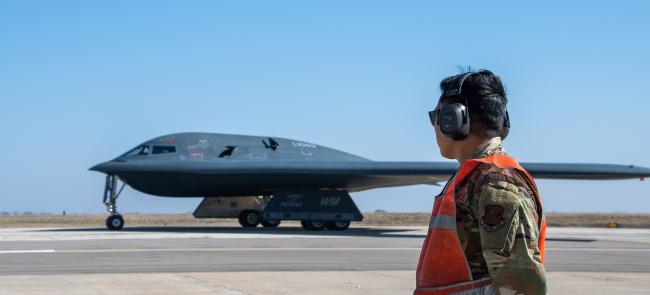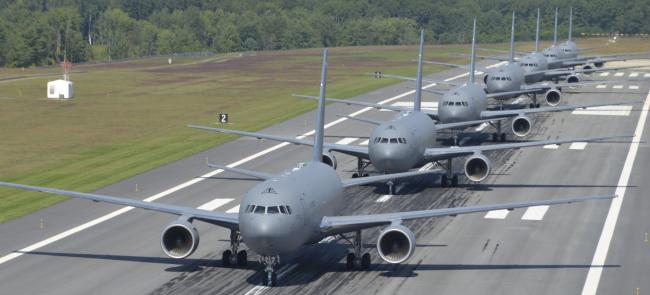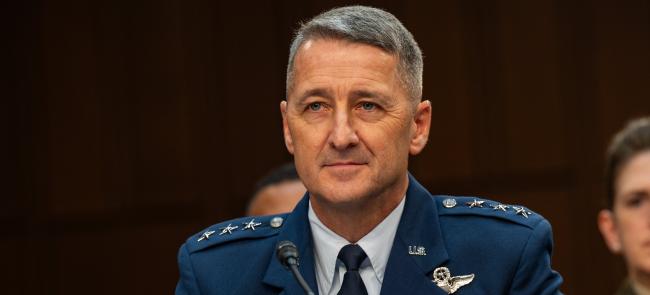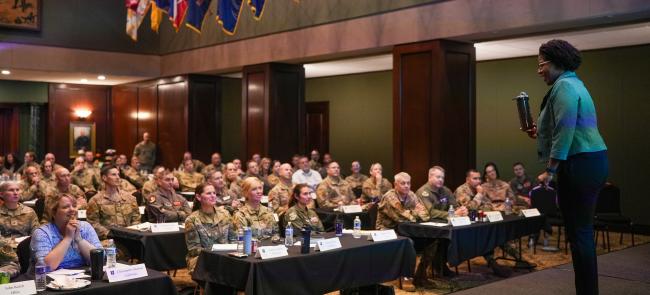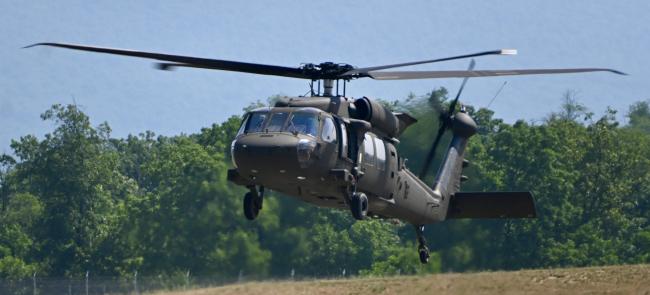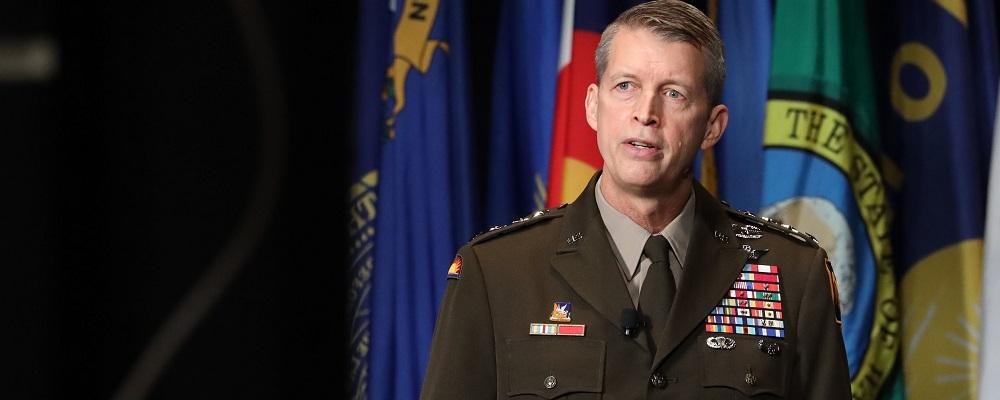
The new chief of the National Guard Bureau said 2020 is an important and pivotal time for the force and the work done by Guardsmen during this year will shape the future of the country.
Gen. Daniel R. Hokanson addressed NGAUS General Conference attendees on Saturday from the National Guard Memorial, the association’s headquarters in Washington, D.C.
He began by recognizing outstanding soldiers and airmen who have gone above and beyond the call of duty during COVID-19 and civil unrest activations.
He highlighted the service of Spc. Ashley Rodriguez, a New York Army National Guard soldier who volunteered to recover the bodies of people who died of COVID-19. He also spoke of the heroism of airmen with the District of Columbia’s 113th Air Wing, who saved the life of a person while on a civil unrest mission at the Lincoln Memorial in the nation’s capital.
“Excellence begins with a single individual, a soldier or airmen, who brings an extraordinary commitment and skill to the mission at hand,” said Hokanson. “And that excellence can be contagious.”
Hokanson also looked overseas to recognize the work of the North Carolina-based 30th Armored Brigade Combat Team, which recently returned from a deployment to Kuwait. He compared the brigade’s service in the Middle East to the unit’s actions in France in World War II.
This deployment, he said, proves that “warfighting is our primary mission” and that the Guard will “always answer the nation’s call.”
To accomplish both the homeland and overseas missions, Hokanson emphasized the importance of finding a balance among military obligations, family and civilian careers.
“When we lose that balance, we often lose good Guardsmen and good families,” he said. “And when we lose good Guardsmen, we lose the most important part of our organization. We cannot and must not forget the importance of supporting our families and employers that make our service possible.”
Hokanson also spoke about upcoming changes for the Guard, including the alignment of much of the Army Guard force under eight divisions. The move will have significant benefits to talent retention and modernization, he said.
“Ultimately however, my goal was to have all of our formations, not matter where they are in the Army National Guard, to be part of a division or a corps level structure so they have a connection to our national defense strategy,” Hokanson said.
Looking to the future, the general said the Guard plans on taking lessons learned from the COVID-19 pandemic as it plans for upcoming activations and training cycles.
And teleworking will play a bigger part in National Guard Bureau activities, said Hokanson. This could include having soldiers and airmen who cannot move to Washington D.C. for Title 10 duty stay in their home states and work for the bureau remotely.

